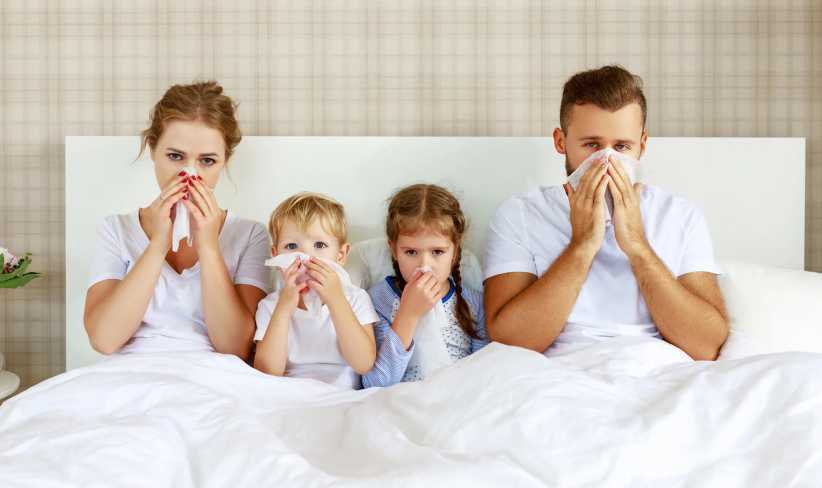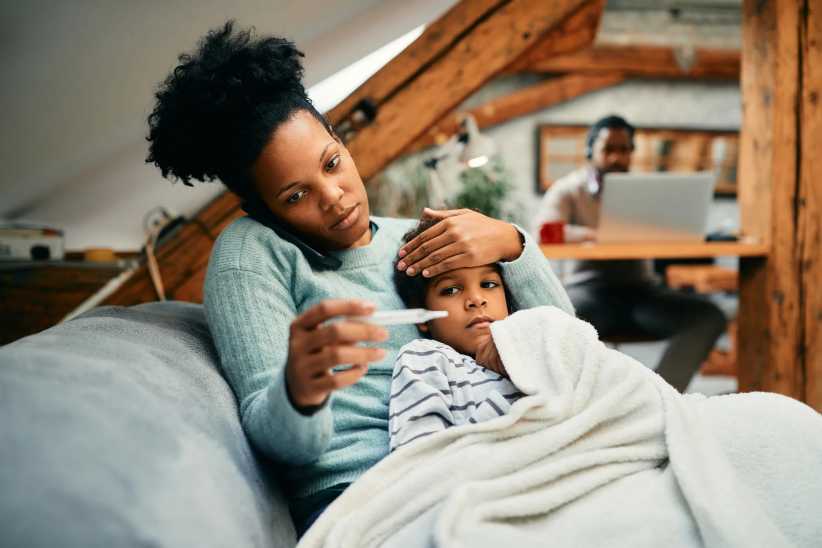
Parenting While Sick: Advice and Tips from an Expert
Let’s face it: sick days happen. Even with religious handwashing, cleaning and hand sanitizing practices, it’s virtually impossible to avoid getting sick once in a while. And when you can’t take a sick day from being a parent like you can take a sick day off of work. Family life continues while you’re trying to get better.
When you’re a parent, getting sick can throw a serious monkey wrench into your daily family routines. On top of focusing on feeling better, you’re also thinking about how to keep the household up and running while you’re out of commission.
We sat down with Dr. Julia Samton, psychiatrist from The Midtown Practice, about how parents can stay on top of parenting while sick or under the weather.
Psst… Here are 6 Sightseeing Cruises in New York City and Nearby
Know Your Rights
New York State has laws in place securing your right to sick leave from work. If you’re a working parent, knowing your employer’s sick leave policy can help you on the path towards resting and feeling better.
“Recognizing and knowing what your rights are is important,” Samton says.
Plan Ahead
It’s not really possible to predict when you’ll get sick, but it’s bound to happen at one point or another. Get ahead of the game by making a plan for what day to day life looks like when you or your partner get sick.
“It’s worthwhile to have a discussion, either with your partner or somebody that you’re co-parenting with, about a plan for what to do when you’re sick,” Samton says.
This plan won’t look the same for every family, but having an idea of what to do when sickness strikes can ease a lot of stress when it inevitably happens.
Call in Reinforcements
Parenting is never a one-man show, but that’s especially true when you’re sick. While putting together your sick day plan, brainstorm with your partner who you could call if you need extra support.
“I think you want to have a short list of people who can be on call, whether that’s friends, family members or babysitters,” Samton says. “Have a list of not just one or two, but five or six people.”
If you’re not located near family or you run out of support on your list, look into options like an emergency nanny (often offered through nanny agencies), after school programs or community programs.
Bringing in a friend or an emergency nanny might be a good choice, especially if you or your partner work remotely.
“If you have someone new watching your kids or helping you out, you will be at home,” Samton says. “So even though you can’t be doing as much because you’re I’ll, you’ll be at home to supervise.”
Recognize Your Limitations
Even with the best plans, not everything is going to go perfectly on a sick day. Between the changes in routine and not feeling at the top of your game physically, things are bound to go wrong at one spot or another.
Knowing and accepting that things won’t be perfect on a sick day is half the battle.
“It’s important to recognize your limitations, because we all have limitations, and accept the fact that not everything has to be perfect and things aren’t going to be able to get done in the same manner when you’re not feeling physically well,” Samton says.
This might be hard to handle, but things going awry when you’re sick doesn’t mean you’re a bad parent. And accepting this will make focusing taking care of yourself on a sick day much easier.
“We just have to really work on accepting and recognizing our limitations and realize that that’s not a statement on who we are as a parent or as people,” Samton says. “The quicker you accept your own humanity, the better.”














